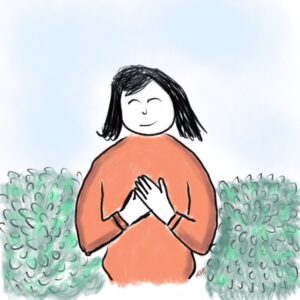
We are collectively facing a tumultuous time in the world with war, climate disruptions, polarization, and financial and technological challenges. I ask myself, and others ask me, “How can we be grateful when so many are suffering?” It is an important question.
We must be empathetic, show compassion, and do our best to support those in need. Yet, paradoxically, fostering a sense of gratitude is equally imperative. While it feels counter-intuitive, we must also be grateful and appreciate all we have. We are interconnected, emotions are contagious, and our hope and optimism can ripple out to positively influence others. If we stay focused on what is not going well in the world, we don’t have the energy to find ways to make life better for ourselves and others.
One of the world’s leading scientific experts on gratitude, Robert Emmons, Ph.D., concurs that gratitude is indispensable. He articulates this perspective in an article for Greater Good:
“I have often been asked if people can—or even should—feel grateful under such dire circumstances. My response is that not only will a grateful attitude help—it is essential. In fact, it is precisely under crisis conditions when we have the most to gain by a grateful perspective on life. In the face of demoralization, gratitude has the power to energize. In the face of brokenness, gratitude has the power to heal. In the face of despair, gratitude has the power to bring hope. In other words, gratitude can help us cope with hard times.”
Acknowledging the challenges inherent in life, we recognize that suffering is an inevitable part of the human experience. Hopefully, we grow through these challenges and see many of them as opportunities and experience moments of transformation.
According to Emmons: “Trials and suffering can actually refine and deepen gratefulness if we allow them to show us not to take things for granted. Our national holiday of gratitude, Thanksgiving, was born and grew out of hard times. The first Thanksgiving took place after nearly half the pilgrims died from a rough winter and year. It became a national holiday in 1863 in the middle of the Civil War and was moved to its current date in the 1930s following the Depression.”
The celebration of Thanksgiving is a testament to the enduring power of gratitude to sustain us through hardship. As we navigate these tumultuous times, I am grateful for our connection.
I wish you hope, gratitude, and a joyful Thanksgiving.
